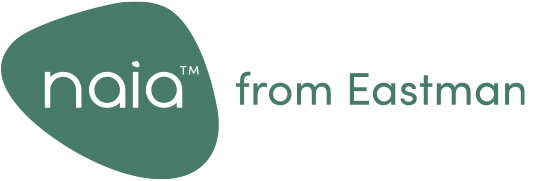Our promise to future generations
We want to make sustainable textiles accessible to all. But this goal goes beyond just manufacturing eco-conscious materials. It’s a promise to future generations to always innovate, collaborate and try to be part of the solution to the world’s most pressing sustainability issues. That’s why we’ve aligned our sustainability goals with the United Nations’ Sustainable Development Goals (SDGs), which act as a blueprint for achieving a better, more sustainable future for everyone.

Our goals
The United Nations’ 17 SDGs are the blueprint to help achieve a better, more sustainable future for everyone. These goals address global challenges, including poverty, inequality, climate change, environmental degradation, peace and justice. The Eastman Naia™ team recognizes our responsibility to participate in positive change and will contribute to the achievement of the SDGs.
The SDGs guide the Naia™ sustainability efforts in three critical impact areas:
- Mitigating climate change
- Mainstreaming circularity
- Caring for society
With our Naia™ sustainability goals, we’re contributing to these core SDGs:
Mitigating climate change
In support of the SDGs to urgently combat climate change and its impacts, our goal is to lower the greenhouse gas (GHG) footprint of the current Naia™ cellulosic fiber portfolio by 40% by 2030. We plan to establish at least three agreements with customers to make measurable environmental impacts by 2025 to strengthen the implementation of and revitalize the global partnership for sustainable development.
Eastman supports the Paris Climate Agreement. Our overall corporate goal is to reduce our Scope 1 and 2 GHG emissions by one-third by 2030 and to achieve carbon neutrality by 2050. Our molecular recycling technologies and award-winning energy efficiency programs will be key to meeting the 2030 goal.
Mainstreaming circularity
To ensure sustainable consumption and production patterns, Eastman is expanding the Naia™ portfolio to include an enhanced sustainable fiber with increased certified recycled content through ISCC certified mass balance. We’re also increasing our Naia™ Renew cellulosic fiber, made through molecular recycling, to be 50% of our portfolio by 2025 and more than 90% by 2030. Finally, we’re ensuring that more than 25% of recycled content is derived from waste textiles by 2025.
To build resilient infrastructure, promote inclusive and sustainable industrialization and foster innovation, we’re making two major strides. First, we’re investing more than 75% of our textiles research and development resources in circular solutions by 2025. We’re also enabling advanced technology and information solutions for track and trace of materials from forest floors and recycled feedstocks to factory doors.



Sustainability isn’t part of our strategy. It is our strategy.
At Eastman, we transform tomorrow by revolutionizing the materials that shape it today — through materials like Naia™. We’ll continue to proactively play our part in creating a healthy textiles industry that helps mitigate climate change, mainstream circularity and care for society.






